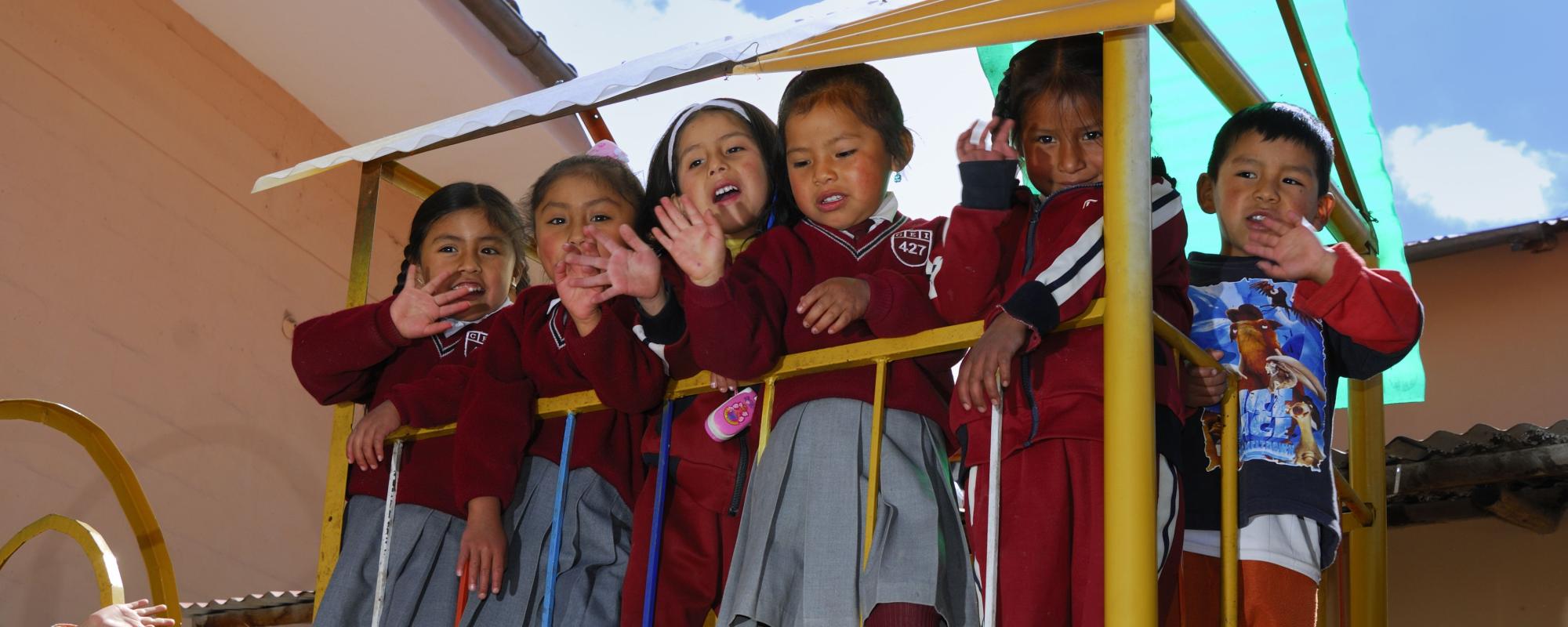Good quality early childhood development (ECD), including pre-school education is now widely recognised as a vital tool for transforming young lives. Despite differences in provision between countries, Young Lives research shows that attending pre-school has a significant and long-lasting positive effect on children’ self-esteem, pride and educational aspirations. Children who attend pre-school education perform better in numeracy tests in all countries at all ages.
In Peru, Young Lives evidence helped to strengthen the focus on early learning in government programmes for preschool children to deliver the improved Cuna Más programme. Young Lives demonstrated that the ECD programme, Wawa Wasi, a government programme set up in 1993 to promote the optimal development of impoverished children aged six months to 4 year was not delivering effective improvements in children’s development. The main recommendations arising from Young Lives' research were to strengthen the early learning components of the programme and to enhance the skills of those who provided care. In 2012 Cuna Más was established, a programme with a much-strengthened emphasis on early education. Young Lives research had a direct impact on this change and its influence was acknowledged by the government:
According to government figures, in 2021, 60,362 children aged between 36 months and 6 years, from marginalised urban areas benefitted from the Cuna Más day care service, and 116,004 families from rural areas benefited from the Cuna Más home visiting service (including children less than 36 months, and pregnant mothers). This has led to improved accessibility for disadvantaged children, especially in rural areas, with a much stronger focus on strengthening early learning, improving cognitive development and language skills.
There is huge scope in further expanding Cuna Más, which currently only covers approximately 15% of its target population. Young Lives evidence suggests that in addition to improving educational outcomes for children, further investment in day-care services will also provide desperately needed support for young women getting back to work after COVID-19 and help to address the gender employment gap.
Good quality early childhood development (ECD), including pre-school education is now widely recognised as a vital tool for transforming young lives. Despite differences in provision between countries, Young Lives research shows that attending pre-school has a significant and long-lasting positive effect on children’ self-esteem, pride and educational aspirations. Children who attend pre-school education perform better in numeracy tests in all countries at all ages.
In Peru, Young Lives evidence helped to strengthen the focus on early learning in government programmes for preschool children to deliver the improved Cuna Más programme. Young Lives demonstrated that the ECD programme, Wawa Wasi, a government programme set up in 1993 to promote the optimal development of impoverished children aged six months to 4 year was not delivering effective improvements in children’s development. The main recommendations arising from Young Lives' research were to strengthen the early learning components of the programme and to enhance the skills of those who provided care. In 2012 Cuna Más was established, a programme with a much-strengthened emphasis on early education. Young Lives research had a direct impact on this change and its influence was acknowledged by the government:
According to government figures, in 2021, 60,362 children aged between 36 months and 6 years, from marginalised urban areas benefitted from the Cuna Más day care service, and 116,004 families from rural areas benefited from the Cuna Más home visiting service (including children less than 36 months, and pregnant mothers). This has led to improved accessibility for disadvantaged children, especially in rural areas, with a much stronger focus on strengthening early learning, improving cognitive development and language skills.
There is huge scope in further expanding Cuna Más, which currently only covers approximately 15% of its target population. Young Lives evidence suggests that in addition to improving educational outcomes for children, further investment in day-care services will also provide desperately needed support for young women getting back to work after COVID-19 and help to address the gender employment gap.


